Below is a must-read communication between the Oregon IPIA/SAA and the career manager of the HUD manufactured housing program. This communication is yet more compelling evidence that the HUD manufactured housing program, lacking the leadership and policy direction of an appointed non-career Administrator, is being mismanaged in ways that are damaging to the industry and its consumers, and that continue to blunt the industry’s economic recovery.
Nominally a response to an inquiry from the program regarding the qualifications of IPIA inspectors, the communication, from the retiring head of a state program that has a national reputation of providing effective consumer protection while being fair to the industry, states that in-plant production — and production quality — is not a problem for the industry and is not a cause of the current long-standing industry downturn. This is consistent with MHARR’s constant message to HUD officials and program regulators that the industry is currently building its best homes and that efforts underway by HUD to promote a costly de facto expansion of in-plant inspection procedures are completely unwarranted and a waste of program resources that are badly needed elsewhere. More importantly, it directly contradicts the assumption within HUD, stated in a January 11, 2010 letter to Rep. Travis Childers from HUD’s General Counsel (and elsewhere), that costly, enhanced production oversight “will assist the industry by attracting lenders back to manufactured housing.”
The communication emphases, instead, that most consumer issues relate to “how the home is sold, how it is set, and how it is serviced.” Two of these three — installation and dispute resolution — have already been addressed by Congress in the Manufactured Housing Improvement Act of 2000. But an operational federal installation program, along with a dozen or so other major reform provisions of the 2000 law, still have not been fully and properly by HUD, some ten years after enactment of the 2000 reform law. This has contributed significantly to the decline of the industry by negatively impacting the production, financing, placement and acceptance of manufactured homes. And while HUD officials claim that such delays are attributable to budgetary constraints, they do not explain how “budgetary” constraints have failed to slow the imposition of HUD’s costly and unnecessary expanded in-plant procedures, involving significant expenditures of time by its entrenched monitoring contractor.
To make matters worse, when the federal installation program is fully implemented, it will still not be as Congress intended, because it will not be preemptive based on HUD’s re-codification of the federal installation standards (and dispute resolution). It is little wonder, then, that as this communication states, zoning and planning restrictions have contributed to the industry’s decline and continue to blunt its economic recovery, while part of the industry in Washington, D.C. maintains that going along with HUD benefits the industry.
In this regard, it is worth noting that the needless expansion of in-plant inspection procedures that has been HUD’s single-minded focus for the past two years, to the detriment of full and proper implementation of the federal installation program and other 2000 Act reforms is, according to the HUD Assistant Secretary for Housing-Federal Housing Commissioner, endorsed by part of the industry in Washington, D.C., which, he says, has been “very supportive” of HUD’s efforts. This same group, according to Department, continues to “collaborate” with HUD on various issues, instead of holding it accountable to fully and properly implement existing finance and production laws, even as industry production has fallen to historic lows.
This effort to impose a de facto expansion of the enforcement regulations is one of the main topics that will be addressed in greater detail at the MHARR Board of Directors meeting in Tunica.
Manufactured Housing Association for Regulatory Reform
1331 Pennsylvania Ave N.W., Suite 508
Washington, D.C. 20004
Phone: 202/783-4087
Fax: 202/783-4075
Email: mharrdg@aol.com

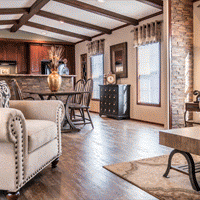

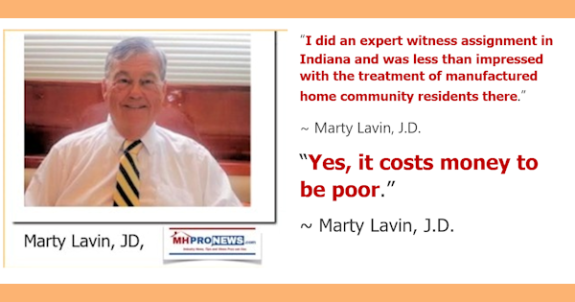
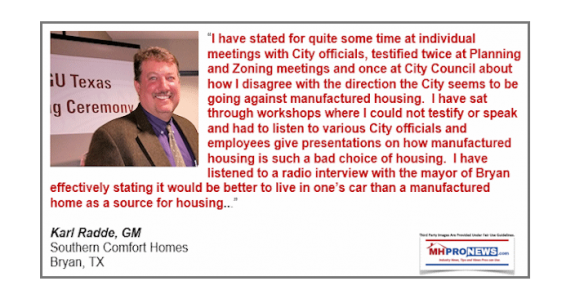
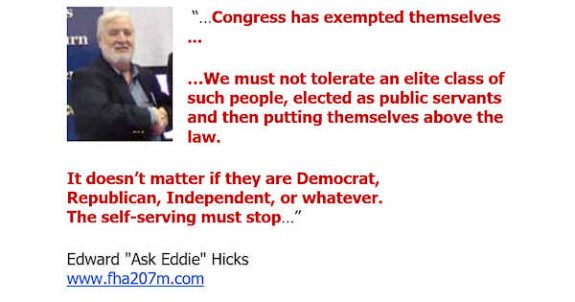
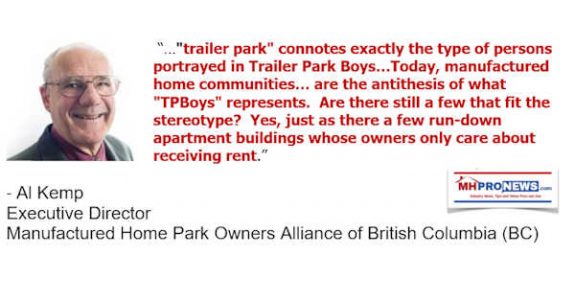
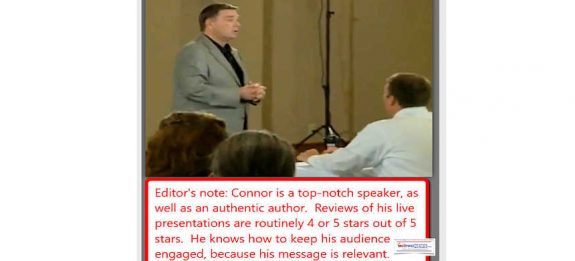
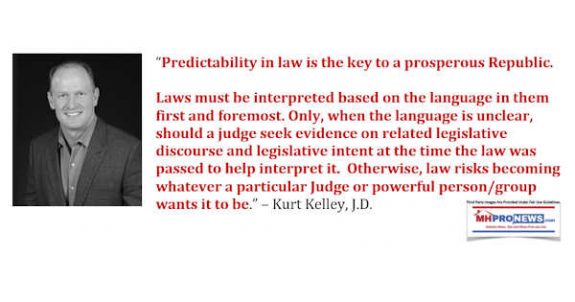
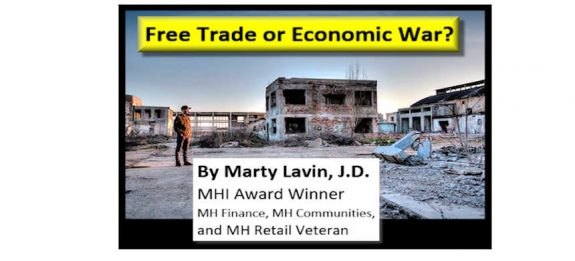
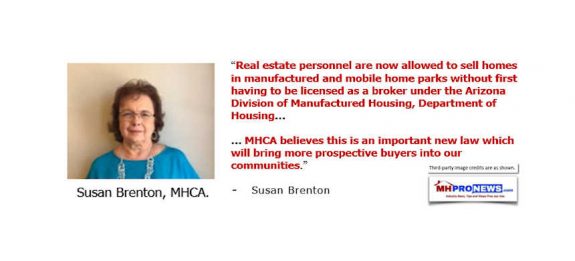
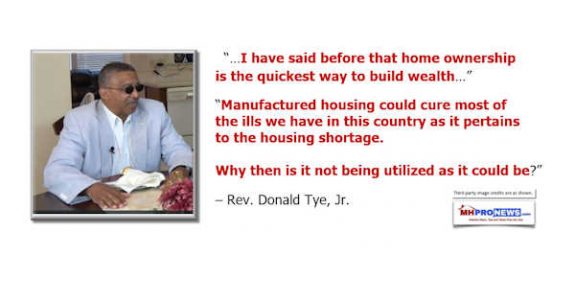
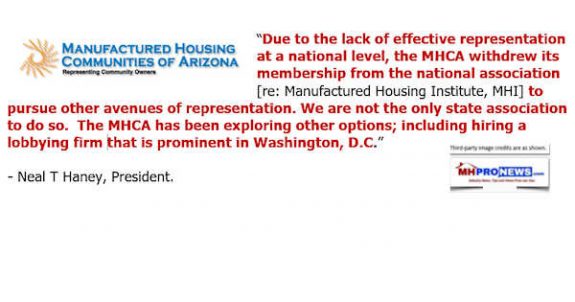

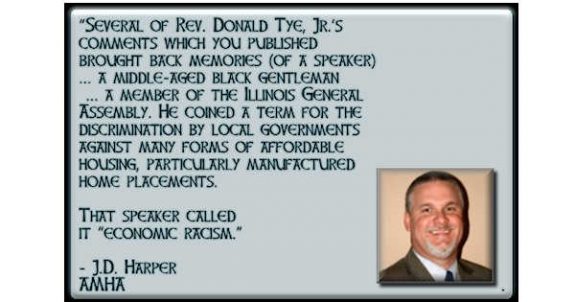
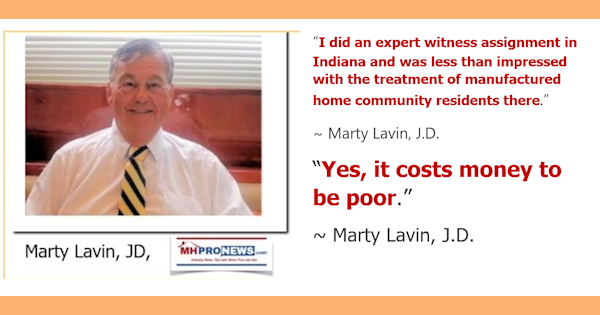
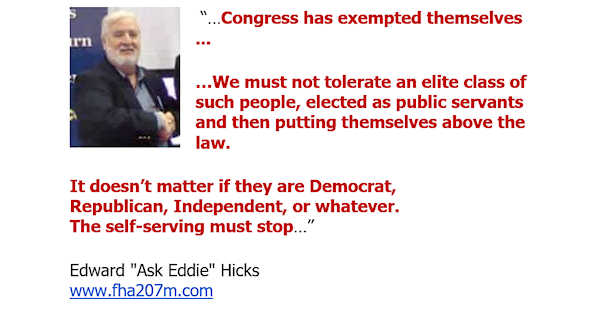
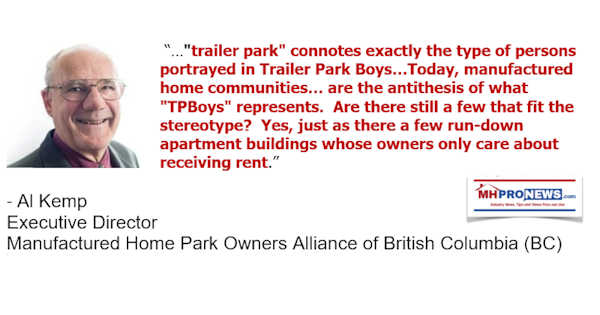
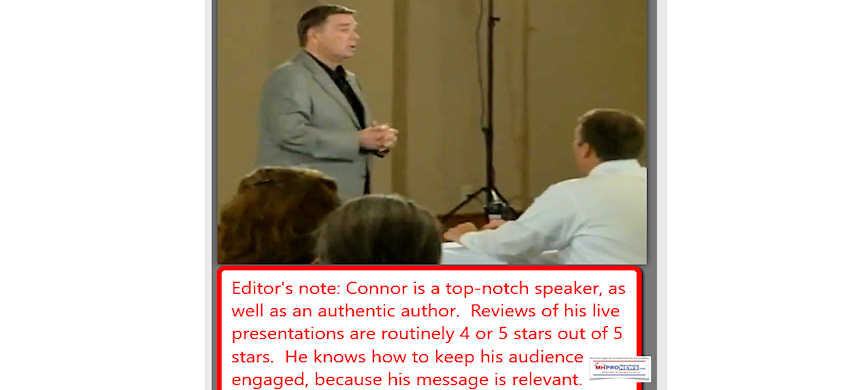
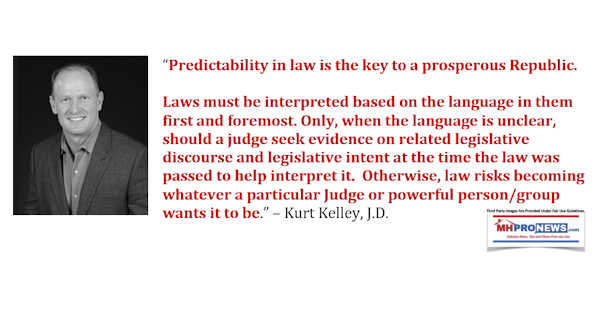
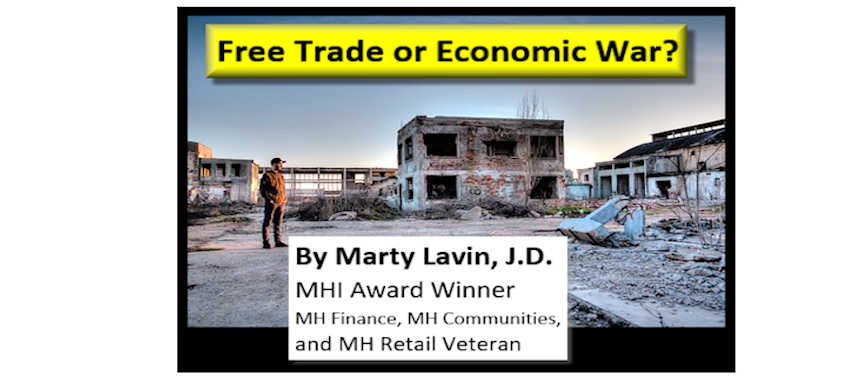
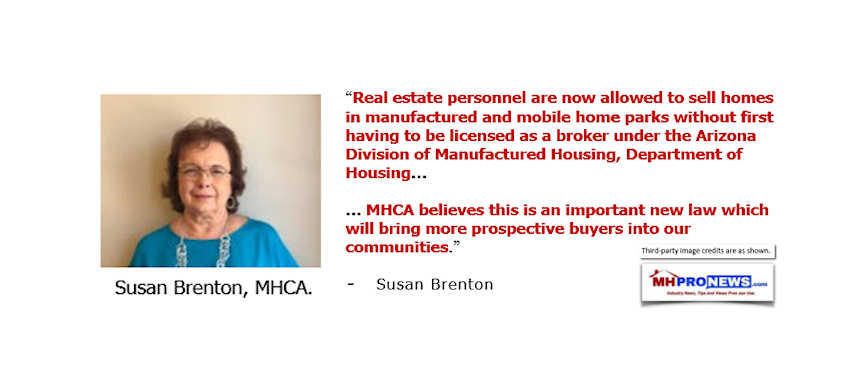
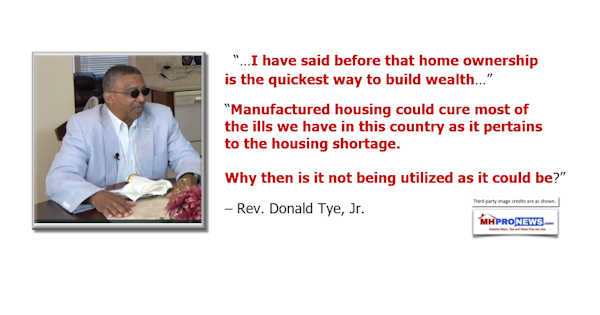
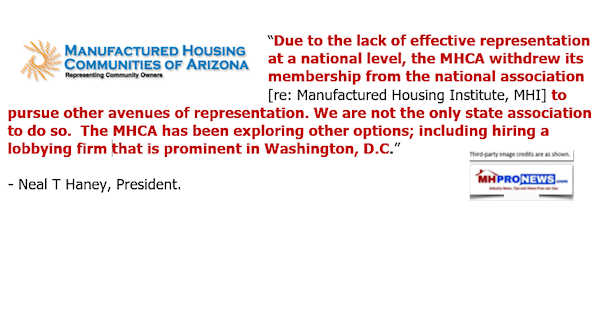

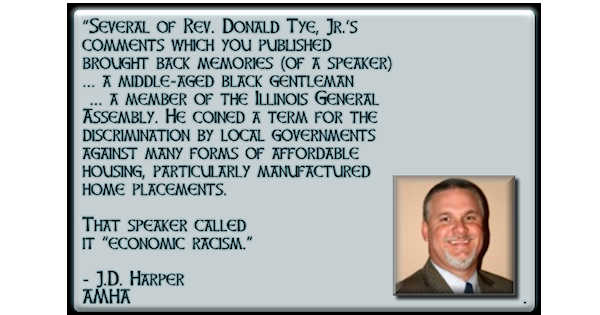
Karl Radde – TMHA, MHI, Southern Comfort Homes – Addressing Bryan City Leaders, Letter on Proposed Manufactured Home Ban
To All Concerned [Bryan City Officials, Others]: As the retail location referenced by Mr. Inderman, I would like to take a moment to address the …